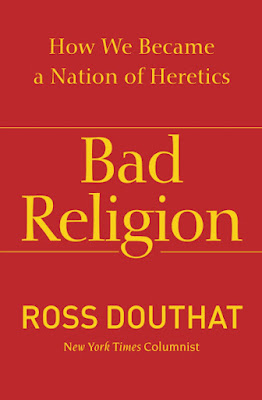- What is the nature of Ultimate Reality (or Truth)?
- What is the nature of material reality?
- What is a human being?
- What happens to a person at death?
- Why is it possible to know anything at all?
- How do we know what is right and wrong?
- What is the meaning of human history?
I’ve been asking my students to use these questions when we analyze art for about as long as I’ve been teaching. I have no idea where I got this idea. I probably picked it up in one of the myriad resources I access all dealing with Classical Christian Education. Answering one or more of these questions seemed like a great way to look at a piece of great art.
And thus far, I’ve been happy with the results as my students are forced to look at a masterpiece and try to discern the artist’s message or other truths.
And yet, I now realize I was operating blind. After reading The Universe Next Door by James W. Sire, I can imagine a much fuller use of these central questions. Specifically, I am challenged to use these questions to analyze my own presuppositions. I am also challenged to use them to analyze my student’s assumptions. How often do we, as Christians, stray from orthodoxy because it “sounds about right”? Is it possible that what I, or my students, are claiming to be true is not, in fact, true?
The beauty of a Christian Theistic worldview is its insistence on absolute Truth. This worldview “teaches that not only is there a moral universe but there is an absolute standard by which all moral judgments are measured. God himself—his character of goodness (holiness and love)—is the standard” (p. 30). And yet, the pursuit of this absolute Truth can become difficult and at times, divisive. That’s where the Deistic Worldview enters. This view, so similar to Christian Theism, can tempt a believer with its simplicity and rationality.
Our culture is awash in, what Sire calls, “Moralistic Therapeutic Deism.” This belief posits a good and loving God who wants His creation to be happy. He does not need to be involved daily, per se, but is available when a problem arises. He promises Heaven to all the “good” people. He’s not at all demanding. He is love. This is so close to the mark, that the Christian can easily find himself slipping into this form of deism. It infuses our culture and shows up throughout social media. It’s in the “feel-good” and “uplifting” memes meant to bring hope and happiness to all.
And it’s easy to “like.”
As a Christian and a Christian educator, I must be on guard for this slippery thinking. Yes, God is love. Yes, God is good. He is available to us when we are challenged. Heaven does await His children. But our God also demands perfection, and barring that, has made a way where there seemed to be no way through the death of His Son.
This brings up the additional eighth Worldview question not addressed earlier, “What personal, life-orienting core commitments are consistent with this worldview?” Sire answers this question, echoing the Westminster Catechism, “Christian theists live to seek first the kingdom of God, that is, to glorify God and enjoy Him forever” (p. 32). Our purpose on earth is not our own personal happiness. So often I can find myself falling into this mode. “God wants me to be happy.” That is not my purpose. My purpose is to glorify God and praise him for the grace and mercy He showed through His sacrifice on the cross. My happiness is incidental. His purpose for me is to mold and shape me into the likeness of the Son.
Our students can be caught in this trap as well. For them, life is about good grades to get into a good college to get a good job to make a good living to live in a good house with a good family and surrounded by good stuff. This is happiness. But that is not happiness. That’s the lie of Moralistic Therapeutic Deism. And our students are buying it.
My job is to recognize and combat this lie, both in myself and in my students. True happiness is in pursuing God and becoming like Him. This is often painful. This is, at times, sublime. But it is, and should always be, the goal.
Although it is helpful to explore all the worldviews circulating in our world, for me, the value of this book is in its ability to shine a light on the areas where I find myself, and my students, most likely to err.












